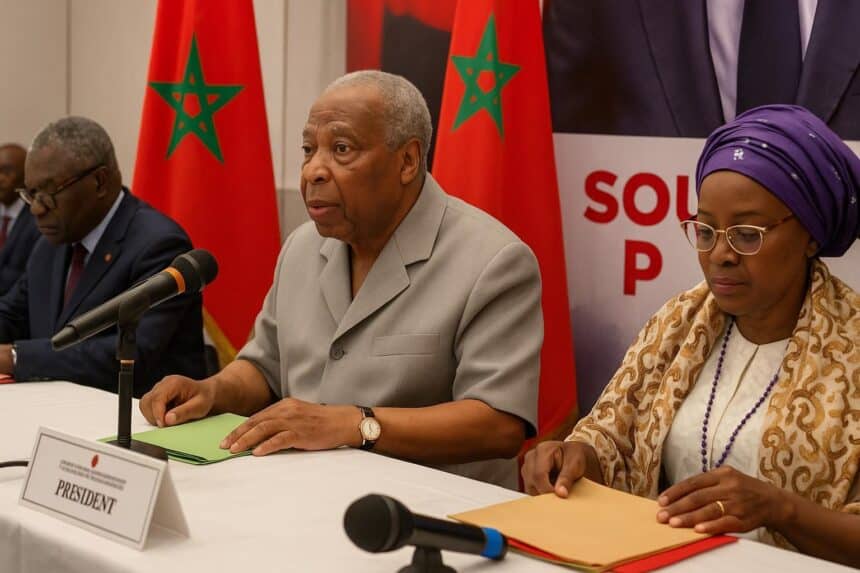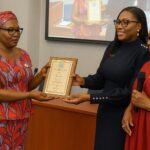Congress countdown in Brazzaville
Less than three months before delegates gather in Brazzaville, the Congolese Labour Party (PCT) says its sixth ordinary congress is firmly on track. Preparatory committees presented encouraging figures during a coordination meeting chaired by veteran leader Pierre Moussa on 9 October.
According to deputy rapporteur Antoinette Kebi, five of the seven thematic commissions have already submitted their final reports, while the last two are expected to deliver “very quickly”, keeping the event within its agreed timeline despite minor calendar adjustments.
Commissions deliver their findings
The thematic commissions cover politics, economic doctrine, institutional reforms, social and cultural policy, unions and associations, communication strategy, and environmental sustainability, reflecting the broad portfolio the party intends to debate in December.
Parallel to that intellectual work, seven technical commissions handle logistics, finance, congressional communication, protocol, transport and accommodation, accreditation, health and security, ensuring delegates can focus on policy rather than practical hiccups.
“We remain confident,” Kebi told the press, adding that the coordination will soon pass the documents to the technical organisation committee, then to the Political Bureau, and finally to the Central Committee, which must validate every line before provincial federations are briefed.
Inside the meeting room at the party headquarters on Rue Alfred Raoul, participants described a studious atmosphere, laptops open, piles of printed charts at arm’s reach. Observers say the methodical pace contrasts with the frenetic preparations of some previous congresses.
Funding drive pushes toward target
Fund-raising nevertheless remains a challenge. Special contributions from militants, sympathisers and elected officials have so far covered roughly fifty-five percent of the target budget, prompting Moussa to urge “an extra push” so that transport subsidies, accommodation and communication tools are fully financed.
Sources inside the finance commission underline that prices for fuel and printed materials have inched upward in recent months, squeezing margins. Still, the party leadership insists that no delegate will be left without transport or lodging, a point seen as crucial for national cohesion.
New date proposed for smoother agenda
Calendar adjustments also hit the headlines. Because the National Assembly and Senate plan to close their budget session on 23 December, organisers have proposed opening the congress on 27 December instead of the earlier 19–20 December window, pending Central Committee approval.
Observers note that a later start would allow parliamentarians, many of whom are senior party figures, to attend the congress without splitting their agendas, reinforcing the link between institutional work and party strategy.
Political analyst Rodrigue Oko, contacted by telephone, believes the rescheduling is pragmatic. “Budget debates are intense; waiting four days removes stress and lets the party showcase unity,” he said, adding that late December still falls before the festive break when travel peaks.
Policy debates: economy, youth, climate
On content, insiders expect the economic doctrine commission to refine proposals for diversifying growth beyond oil, with renewed emphasis on agriculture and digital services, consistent with the national development plan adopted in 2022 (Les Dépêches de Brazzaville).
The institutional reform team, meanwhile, is reportedly reviewing internal voting procedures to encourage greater participation by young cadres and women, a signal that the PCT wants to mirror the demographic dynamism visible in urban centres like Pointe-Noire and Dolisie.
Communication remains another strategic axis. The dedicated commission is crafting a multimedia playbook blending short videos, photo stories and real-time messaging, aimed at keeping militants nationwide engaged through smartphones, an approach already piloted during last year’s municipal campaigns.
The social and cultural policy commission is collecting data from the Ministries of Youth and Culture to draft a platform encouraging local music, fashion and cinema industries, sectors viewed as job creators for the 18–35 generation that forms the bulk of the party base.
Environmental experts inside the sustainable development group are, for their part, analysing deforestation trends in the Sanga and Likouala departments, hoping to integrate community forestry and carbon-credit mechanisms into the final resolution, aligning party goals with national climate commitments.
Health, security and local impact
Security planners are also updating protocols. According to a source within the health and security unit, rapid testing stations for common seasonal infections, as well as temperature checks, will be installed at venue entrances, reflecting lessons learned during the Covid-19 pandemic.
Beyond the internal debates, many Brazzaville residents view the congress as an economic opportunity. Hotels in Bacongo and Poto-Poto already report a spike in bookings from provincial delegations, and street vendors are planning pop-up stalls near the Congress Palace.
For young activists like 24-year-old law student Mireille Ndongo, the gathering is also a networking moment. “I joined the party during the presidential campaign. This will be my first congress, and I want to learn how policy is shaped,” she told this outlet.
Between finalising reports, closing the budget gap and polishing logistics, the PCT still has work ahead. Yet the coordination’s upbeat tone, and the clear roadmap stretching from commissions to the Central Committee, suggest party militants will meet in Brazzaville with files—and ambitions—ready.






















